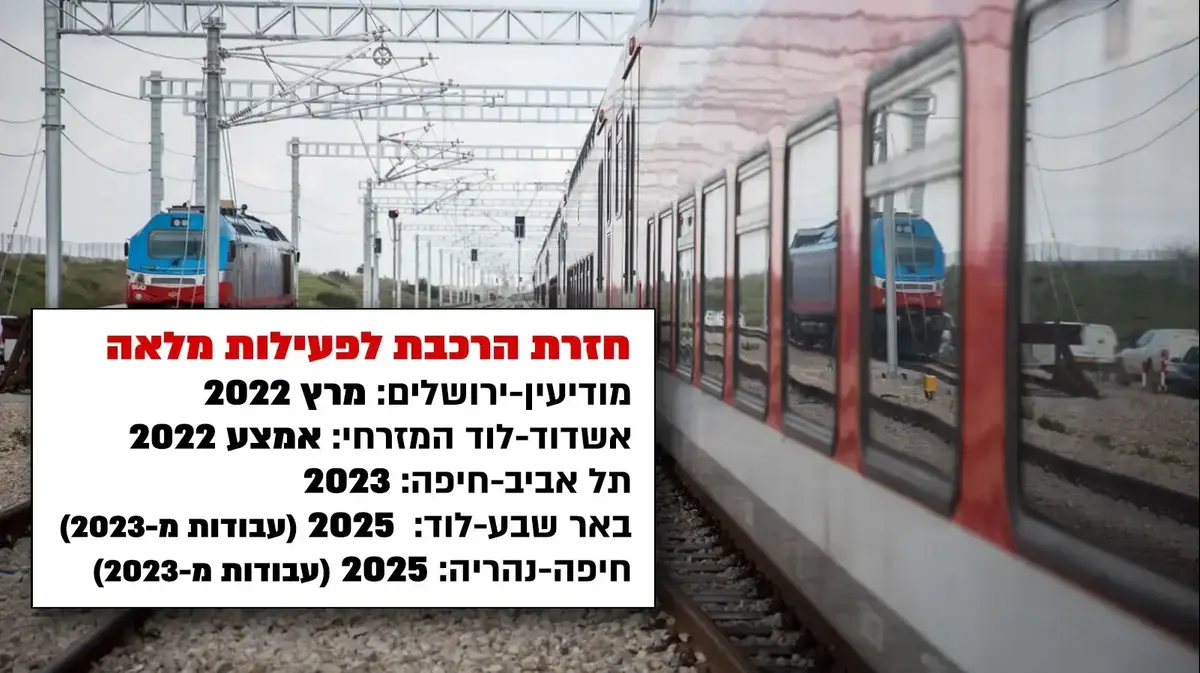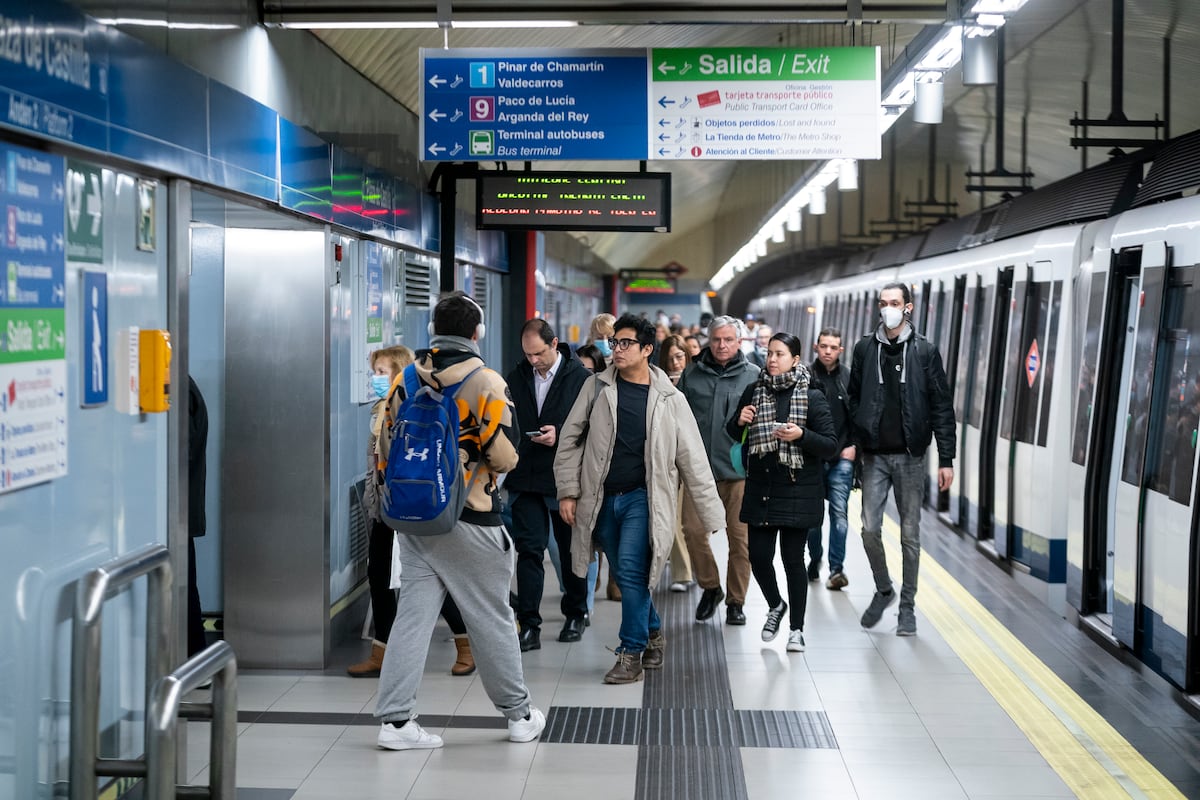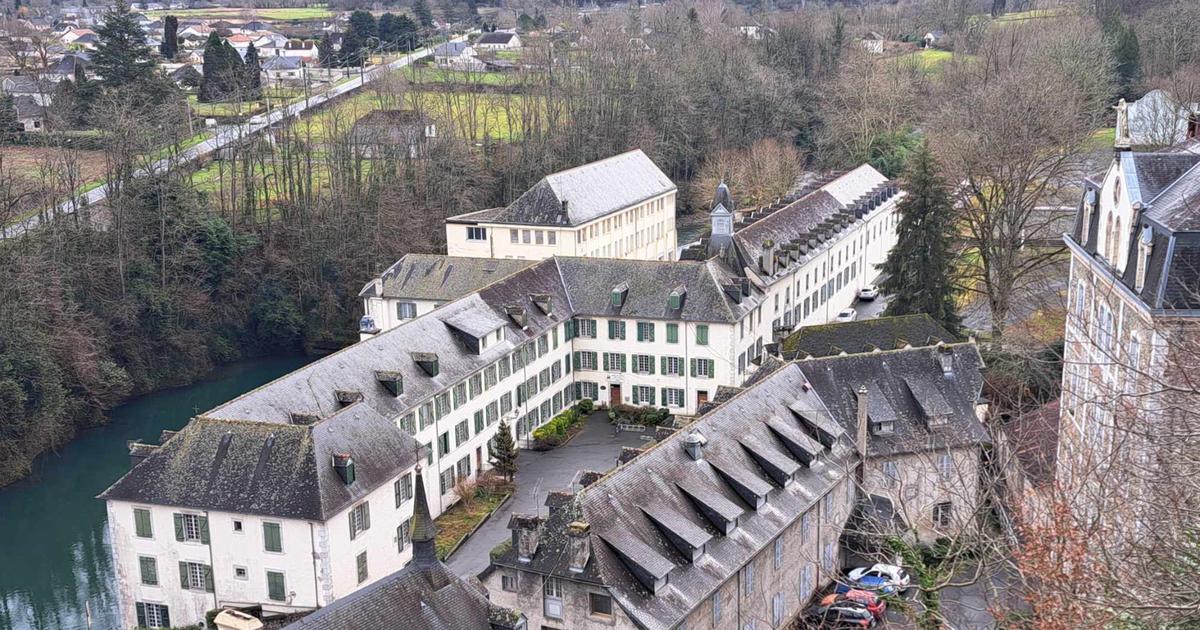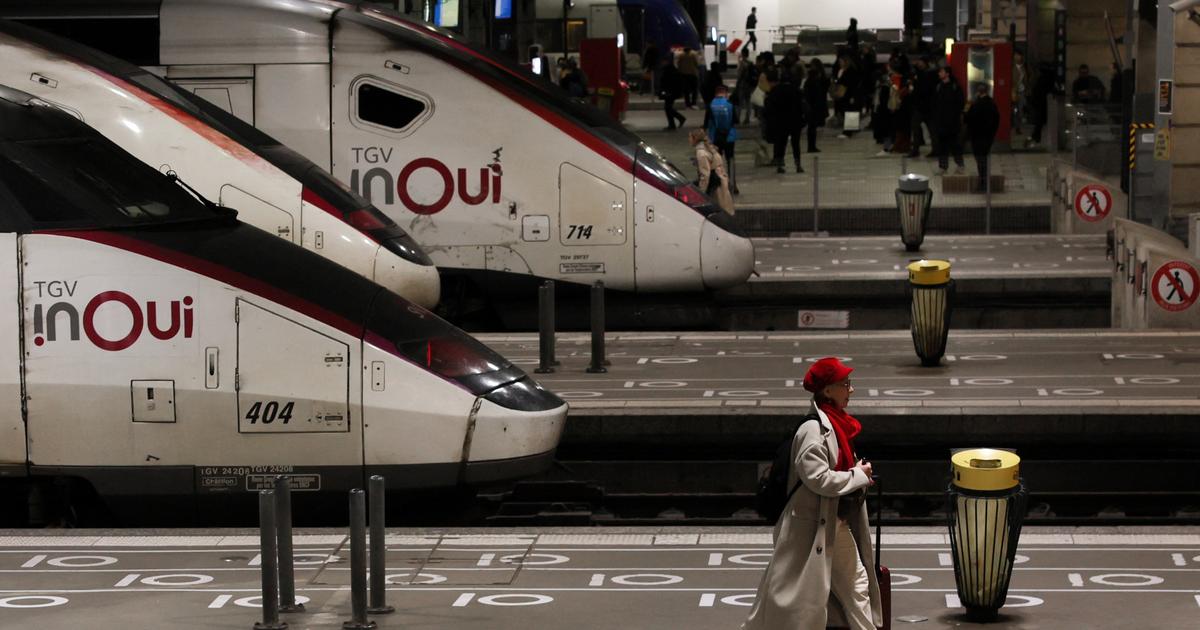news
News in Israel
Events in Israel
There have been no trains on weekends and in the evenings for more than a year, and passengers are lost
The acceleration of the electricity project under the auspices of the second closure imposed a severe and long-term restriction on public transport users.
In the past 14 months, no explanations have been posted on the train's website, and according to the passengers, the solutions are not satisfactory: "Waiting for hours for the bus."
What are the reasons for the delay and when to return to activity?
Walla!
Make an order
Tags
Israel Railways
a train
Public Transport
Department of Transportation
Keinan Cohen and Uri Sela
Wednesday, 01 December 2021, 06:59 Updated: Thursday, 02 December 2021, 07:01
Share on Facebook
Share on WhatsApp
Share on general
Share on general
Share on Twitter
Share on Email
0 comments
In the video: The inauguration of the light rail between Jerusalem and the Savidor station in Tel Aviv (Photo: Yotam Ronen)
Hundreds of thousands of passengers have not been able to use the train on evenings and weekends since last September.
What started as an opportunity to accelerate the electrification project with the imposition of the second corona closure has become an ongoing reality, often seeming arbitrary and illogical, and causing much frustration among the unanswered public.
For its part, it is expected to be completed only in 2023, with the expected completion of all electricity in 2025.
When asking for answers, the train provides a complex picture.
According to them, the project is not a luxury or a whim intended to boast of a green image, but a necessity of reality made a moment before reaching a problematic operational situation.
One that will drag the most efficient means of transportation in Israel into random silences that will have a much greater impact.
Between the two sides are years of delays and challenges, which need to be put in order.
for further reading
Walla !: Does the Israeli driver have a reason to switch to public transportation?
The plan to reduce congestion on the roads: This is what the budget of the Ministry of Transportation will look like
The natural solution to knee pain is closer than ever - with a refund from the health insurance fund
Completion of the project is still a long way off (Photo: Official website, Cloudview Saturn Phone)
Switching trains to electric propulsion is a trend that has been taking place in the world of railways for decades.
The advantages of electric locomotives over those of older diesel locomotives - many.
Some relate to routine maintenance, such as removing the need for expensive maintenance systems, massive fuel consumption and spare parts, and the lack of recurring failures in the locomotive fleet, some of which has entered the fourth decade of its life.
On the service side, not only are the new trains quiet, new and comfortable, but the significantly better acceleration capabilities will allow for better compliance with schedules and higher frequency.
And in the wider circle - environmental impact that includes reducing noise hazards produced by diesel trains, air pollution in platforms and in neighborhoods adjacent to the railway route.
Long hours of preparation.
Train works (Photo: Nir Ben Tovim, Keinan Cohen)
The importance may be understandable, but the question of timing still remains.
The understanding that the train should be treated as a central and critical means of transportation and invest in its infrastructure came in the early 2000s.
A year later, the electrification project was launched for the first time, and after almost a decade of examination, screening, approval, appeal, tenders and more - it was canceled.
It was propelled again in 2010 and got stuck again for years of power struggles between the train, then-Transport Minister Israel Katz and the National Roads Company, later Netivei Israel, until the first tender was published in 2015 and about two years later work began.
When the issue of electricity first came up, the volume of train travel was significantly smaller than it is today.
In numbers - with the start of the process in 2000, about 12 million passengers traveled by train per year, in 2015 about 52 million, and at the beginning of the works in 2017, the number rose to 68 million.
It remains only to imagine the limited extent of harm to passengers if the project had been done in that critical first decade.
Complicated application
The reasons for the length of the process are divided into several layers. The first of these is the fact that the starting point of the railway infrastructure in Israel is problematic. When similar projects are carried out in other countries, train traffic on the same section of track being treated is routed to parallel tracks or bypasses, while in Israel in most major places, such as the Tel Aviv-Haifa axis - the busiest on train lines - this is simply not possible. And even in places where it is possible to move trains on parallel tracks, these are very limited sections and also around them a whole "sudoku" of copying locomotives and carriages is conducted to continue to meet the schedules.
Each shift, which according to the train management includes about 200 workers at each site, requires the transport of materials and works on the track itself, so that the movement of trains in parallel is not possible.
From the moment the last train passed until the start of the work itself, it takes between three and four long hours, after which it is necessary to evacuate the equipment and perform an "axis opening" before the start of regular traffic on the tracks.
The train claims that this period of time can not be shortened.
In relation to the weekends, the train says that as long as they are given permits from the Ministry of Labor and Welfare, "with all the required balances", they make the maximum use of time in the intervals given to it.
(Photo: ShutterStock)
Among the many obstacles on the road to electrification is the ongoing labor dispute between management and the workers' committee. "Negotiations have been taking place in recent months, including on the issue of electricity. The management has made an effort to reach an agreement, but the negotiations have not been successful," the train said. "The workers' committee took organizational measures that stopped the works as well as the operation of the lines. Following the delays, the court intervened and ruled that the sanctions should be stopped and negotiations held at the same time."
The workers' committee sees things differently.
"Whoever refuses, time and time again, to reach agreements with the workers and sign a collective agreement, is the management - and not the workers 'representative. The organizational steps taken by the workers' committee were approved by the court, "The court's decision last week, to no longer allow employees to defend their rights through the proportionate organizational measures taken, is a wrong decision and therefore the workers' committee filed an appeal to the national court," they said in response.
"For faster you need more money."
Meiksner (Photo: Official Website, Israel Railways CEO)
According to Railway CEO Micha Meiksner, accelerating the project depends on budgets.
It is billions, including new agreements. "He claims that this could further hurt the traveling public." Working faster is disabling more lines.
"We are constantly trying to balance the promotion of electricity, the envelope of work with the removal and bringing in of workers, tools and materials and the continuation of service.
"
"If I go by the public noise and take down the whole story it will be populist, it suits the people of yesteryear. I mess with the results that will be after my term, not within my term."
See very far
The question of the end date can be divided into the short, medium and long term.
From the end of December, passengers from the Herzliya line to Ashkelon via the Sharon Ring will be able to see trains returning to activity during longer working hours than before and more frequently.
In the medium term of the first quarter of 2022, the Jerusalem Intelligence Line will also be opened, and upon completion of the works on the Jerusalem-Herzliya line, it will also be fully open, including on Fridays.
Later in 2022, the Rehovot and Beer Yaakov stations will also be fully operational.
The Haifa-Tel Aviv section, the busiest and the one that attracts the most attention and fire, will be operated gradually during 2022, when initially it will be the Herzliya station, followed by Netanya and Hadera.
Full operation of the line - only in 2023.
In the longer term, from 2023 until the completion of the project in 2025 - Lod-Beer Sheva stations and the lines to the northern stations to Haifa.
(Photo: ShutterStock)
The list of causes for the shutdown is endless, but the explanations do not reach the passenger at all. The initial announcement of the cessation of activities landed on the public without notice. In the last 14 months, no accessible and clear information page about the project has been uploaded to the train site, how long it will take and what are the alternative solutions, if any.
The train operates shuttles as an alternative to the disabled lines at various stations, but in Haifa it was decided that the existing bus lines are sufficient. "My job is in Tel Aviv, and now I'm terribly limited. I finish at hours when there are no more trains and have to take a bus, which lengthens the road by an hour or more, if there are no traffic jams," says Ayala, 25, who lives in the city. "My parents live in Pardes Hanna and on Fridays there is no way to travel except to get to the Hof Carmel station and wait there until a bus arrives that will have space available. There was a time when I waited for three buses because there were too many people."
"I no longer travel from Pardes Hanna on Saturday evenings because I can not know if the bus will stop me," she added.
"He leaves Jerusalem and has to reach a central junction to get on, and sometimes wait there for a long time in the dark. It disrupts all the planning of the times and creates uncertainty. I try to reach Meirav Michaeli and she does not answer me."
The alternatives are unsatisfactory.
Hof Hacarmel Railway Station in Haifa (Photo: Official website, from Wikipedia)
Yifat also lives in Haifa and works in Tel Aviv. For her, stopping trains in the evenings requires leaving the office early to make it to the last train - and continuing to work from a laptop in the crowded caravan. "In the past I could get on a train even at 23:00 or even at midnight if the work continues but now this option no longer exists, which of course hurts my capacity," she says. "Everyone is hurt by the reduction in operating hours. There is talk of connecting the periphery to the center, of the traffic jams that have become even more unbearable in recent months and of giving affirmative action preference for public transport.
Maoz Yinon, who four years ago founded the Facebook group "By Train" which reports on problems with the train, noted that "the main flaw is that everything is by surprise.
We do not know when it will close and when it will open.
In the comments on Facebook, they say on the train that it will take until 2025. "Regarding the solution, he says that" even now it is possible to open the contract with the Spanish contractor.
There are no more than a few dozen workers at best who work on electricity during downtime.
These people do not exist.
There are no alternative solutions, all the shuttles are not a solution, it is only so that the minister, whether it is Merav Michael or Miri Regev, can come out with a public relations announcement. "
Partial solutions
The train is aware of claims about the communication between it and the user audience.
"We understood the criticism," they say.
"We wanted to take advantage of the corona period to work as quickly as possible, as a result of which a situation was indeed created where the notifications to passengers were made in short time frames."
More on Walla!
The Economics Committee discusses the shutdown of the train: "Michaeli promotes Tahatz on Saturday, what about jobs?"
To the full article
According to them, "there is a directive from the Minister of Transport that wherever a train is canceled there will be a reinforcement of buses. But we put shuttles from the train stations according to simulations conducted by the Public Transport Authority, and they tell us how many buses to put up. This service to the same extent. "
In response to the criticism regarding the accessibility of the information, CEO Meixner promises that "with the change in the upcoming schedule, which will be done on December 26. This will change. Will also present the response to the disabled lines in terms of transportation alternatives. "
A rolling problem.
Minister Michaeli (Photo: Flash 90, Yonatan Zindel)
The added distrust added to those Saturdays, breaks, cancellations and changes was already one step too many - until the Knesset Economics Committee debated this week on the abandonment of the periphery by the train, which raised serious allegations about the train's operating hours and damage to those remote places that need it.
"During the debate in the Knesset, they brought painful hardships from the public. People spoke from the bottom of their hearts. On the other side sat two representatives of the Ministry of Transportation who murmured and did not give a shred of proper response," said Iris Hahn Contempt and opacity. The train representative did not even arrive.
"" Railway upgrades should be treated as they are treated on the roads, in a way that does not harm the public even when upgrading. Now that Road 2 is being upgraded, does anyone think of closing Road 2 for two years? The periphery will remain on the margins until the same train is not treated. It turned out that it was possible to manage even from ten.Apparently, with more effort, it is possible to manage at other hours as well. "
Share on Facebook
Share on WhatsApp
Share on general
Share on general
Share on Twitter
Share on Email
0 comments















